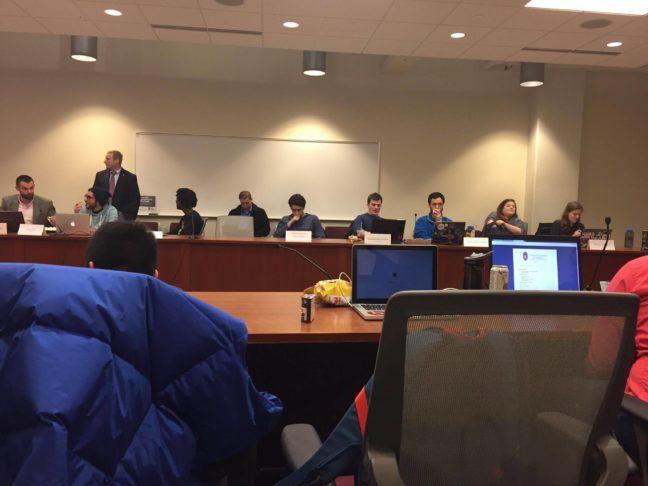In an effort to promote affordable living on campus, Associated Students of Madison unanimously voted to approve changes to University Housing and Dining and Culinary Services at a Wednesday meeting.
Jeff Novak, director of University Housing, discussed upcoming changes around campus, including a student-led initiative to make campus dining food-stamp accessible.
First, Novak laid out University Housing’s main goal: To provide a space where everyone wants to live. To do this, Novak noted the plan to renovate Witte Residence Hall and to implement the Supplemental Nutritional Assistance Program.
SNAP will be the university’s first attempt to bring food stamps into the dining halls and convenience stores. At the moment, Oregon State University is one of only a few universities to institute a program similar to this, but it has only been implemented in grocery stores on campus.
The program will debut fall 2017. Students will be able to apply for the program as it begins.
While SNAP will allow students to pay for some items with food stamps, Novak said hot prepared foods will not be included. Items such as energy drinks and candy bars, however, will be included.
Salad bars are another example of items that may be eligible under the program as well.
The ability to use SNAP in university dining halls is a great step forward, ASM Chair Carmen Goséy said.
“This opens the doors to a more inclusive campus where students from all backgrounds feel welcome,” Goséy said. “I’m glad University Housing is taking this step. Hopefully we can set an example for universities across the country to follow.”
Goséy also praised Rep. Brooke Evans for her involvement in spearheading the campaign for SNAP.
While Evans and other members praised the SNAP proposal, she said she still held some concerns for affordable housing options for students.
Evans said there is a “substantial homeless population” in Madison. Porchlight, a homeless shelter on campus, reported more than 3,500 people experience homelessness every year in the area.
Novak said University Housing has been “playing with ideas,” but the most feasible solution at the moment is to hire anyone who would like to work for them.
Currently, University Housing is the largest employer on campus, with up to 5 percent of students being employed there.
University Housing is continually working to make UW dorms more affordable, Novak said. Housing rates currently range from $7,574 to $9,539.
Renovations for Witte are slated to being in coming weeks while the major upgrades — such as adding an extra floor and air conditioning — will start in summer 2017. These renovations are expected to continue for two academic years.


